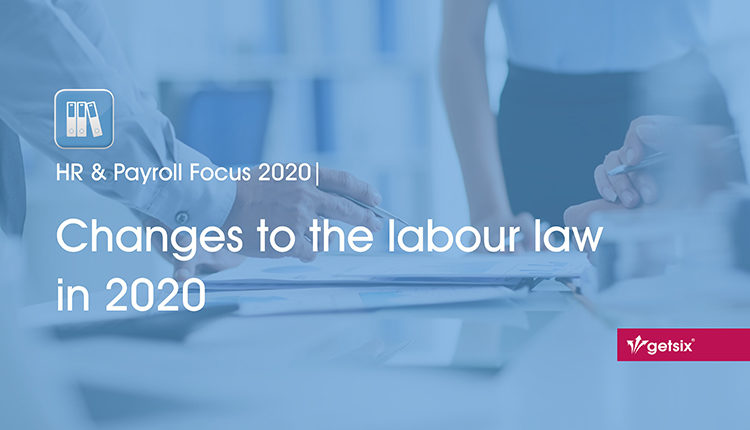Changes to the labour law in 2020
1. Minimum Wage Increase
The minimum wage for 2020 is PLN 2,600.00 gross per month. This increase will impact on several employment-related benefits, such as the night work allowance, minimum base for the calculation of sick pay or the amount exempt from deductions. The minimum hourly rate for persons working under specific civil-law contracts will going up to PLN 17.00 gross.
2. Employee Capital Plans (PPK) – Second Round
The Employee Capital Plans (PPK) are an additional pension scheme in addition to ZUS.
The law on PPK came into force on 1st July, 2019>. Depending on the size of the company, employers are obliged to conclude an agreement on the management of the PPK according to the following schedule:
- From 1st July, 2019 companies employing more than 250 employees as at 31st December, 2018.
- From 1st January, 2020 companies employing more than 50 employees as at 30th June, 2019.
- From 1st July, 2020 companies employing more than 20 employees as at 31st December, 2019.
- From 1st January, 2021 other remaining employing entities.
The offer of the funds will be placed on the www.mojeppk.pl portal. It also contains informational content for employees and employers.
We will continue to provide detailed information on this subject in the coming weeks.
3. Advance Payments on Personal Income Tax (PIT)
From 1st January, 2020, the rules on advance payments for PIT will change. The most significant change is determining the amount of the advance payment in the month of transition from the first to the second tax threshold, i.e. 17% and 32%. Until now, the advance payment according to the second tax rate of 32% was applied only from the month following the month in which the tax base exceeded the upper limit of the first stage of the tax rate amounting to PLN 85,528.00.
From 2020, the advance payment will be applied pro rata, i.e. for the month in which the taxpayer’s income obtained from the beginning of the year exceeded the amount representing the upper limit of the first range of the tax rate – 17% of the part of the income obtained in that month that did not exceed this amount, and 32% of the excess over the amount representing the upper limit of the first range of the tax rate.
4. Income Tax Exemption for Employees and Contractors under 26 years old
In 2019, the employee did not calculate and did not collect any advance payments for income tax (from August to December), if the taxpayer under 26 years old submitted to the tax remitter that his or her income is fully exempt from the income tax in the indicated period.
From 1st January, 2020, this exemption will be automatically taken into account when calculating tax advance payments, without the need for an additional declaration by the contractor. The above-mentioned regulation applies to contractors and freelancers up to the age of 26.
The annual limit for tax-free income will also change – in 2019 it was PLN 35,636.67, while from 2020 it will be PLN 85,528.00.
5. Corporate Social Benefit Fund (ZFŚS)
If the employer decides not to set up a Corporate Social Benefit Fund (ZFŚS) and not to pay holiday allowance, the following steps must be taken:
- Companies which are not obliged to draw up work regulations and have less than 50 employees as of 1st January, 2020: may waiver the payment of holiday allowance until 31st January, 2020, or reduce the statutory amount by informing the employees in writing before the 31st January, 2020.
- Companies that are obliged to draw up work regulations and which have more than 50 employees as of 1st January, 2020: may waiver the drawing up of Social Benefit Fund (ZFŚS) until 31st January, 2020 by publishing this information in the work regulations and informing the employees thereof (changes in the work regulations will come from within 14 days before their introduction).
The employer is obliged to create work regulations if he is not covered by a collective labor agreement and employs 50 or more employees.
6. Statutory Holidays in 2020
| 1st January (Wednesday) | New Year |
| 6th January (Tuesday) | Epiphany |
| 12th April (Sunday) | Easter |
| 13th April (Monday) | Easter Monday |
| 1st May (Friday) | Labour Day |
| 3rd May (Sunday) | Constitution Day |
| 11th June (Thursday) | Corpus Christi |
| 15th August (Saturday) | Assumption of Mary |
| 1st November (Sunday) | All Saints’ Day |
| 11th November (Wednesday) | Independence Day |
| 25th December (Friday) | Christmas Day |
| 26th December (Thursday) | Boxing Day |
If you have any questions, please contact our customer desk, or use the contact form> on our website.
***
We are an independent member of HLB. THE GLOBAL ADVISORY AND ACCOUNTING NETWORK.














